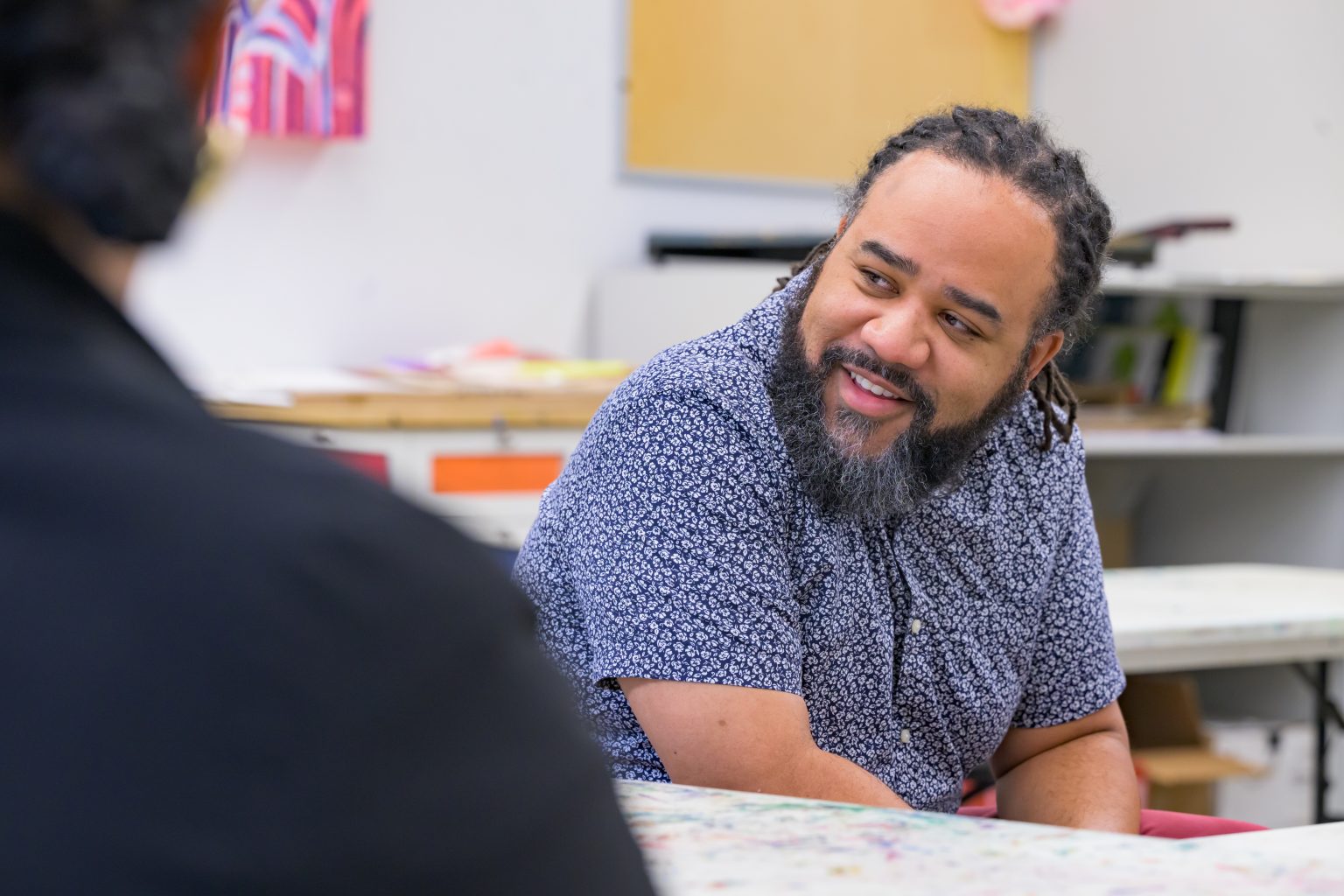Human Development and Family Sciences
New CEHD Faculty Scholar

Roderick L. Carey appointed CEHD Faculty Scholar in recognition of outstanding scholarship in human development and family sciences
Roderick L. Carey, associate professor in the College of Education and Human Development’s (CEHD) Department of Human Development and Family Sciences (HDFS), has been appointed as the CEHD Faculty Scholar. This endowed position seeks to recruit and retain outstanding young scholars in the field of human development and family sciences.
Carey’s interdisciplinary research seeks to make sense of the school experiences of Black and Latinx adolescents in urban contexts, drawing upon critical theories, sociological tools and constructs from developmental and social psychology. Using qualitative approaches, he researches macro and micro issues related to families and schools, teacher education and professional development related to equity in education. His articles have been published in the American Educational Research Journal, the American Journal of Education, Education and Urban Society, Educational Administration Quarterly, the Harvard Educational Review, the Journal of Applied Developmental Psychology and Urban Education, among others.
“Rod conducts critical and timely research on the educational experiences of underrepresented students, especially Black and Latinx boys and young men,” said Gary T. Henry, professor in CEHD’s SOE, who nominated Carey for the appointment during his tenure as CEHD dean. “In his short time at UD, he has not only conducted groundbreaking work in his field, but demonstrated a profound commitment to equity, diversity, and inclusion in education through his research, teaching and service. He is already recognized as a leader in this area, and I eagerly look forward to the development of his promising career.”
Carey’s projects include the Black Boy Mattering Project, which seeks to understand how Black boys conceptualize their worth, and Finding Future Selves, which focuses on how Black and Latinx adolescent boys and young men conceptualize their post-secondary school futures and enact college-going processes. His research has also expanded to include the perspectives of girls and young women of color on factors that shape their perceived worth or mattering.
Carey’s most recent article, titled “The Postsecondary Future Selves of Black and Latinx Boys: A Case for Cultivating More Expansive Supports in College-Going Schools,” was published in The American Educational Research Journal, the flagship journal of the American Educational Research Association. This work offers a rich, ethnographic case study on how Black and Latinx boys imagine their postsecondary futures. With attention to the students’ first-person narratives about their school experiences and personal aspirations, Carey shows how their high school — a Mid-Atlantic college preparatory school in the United States — ultimately fails to understand and support their college, career and personal aspirations for life after graduation.
“The University of Delaware and HDFS are so fortunate to have Rod as a member of our faculty,” said Jason Hustedt, professor and chair of HDFS. “Rod’s work on Black and Latinx boys is groundbreaking, but he is also a Delawarean who returned home to conduct this nationally important work in our local communities.”
Carey also partners with Delaware museums to create opportunities for high schoolers to imagine their societal mattering in new ways by engaging with cultural artifacts and artwork. Since 2019, he and his research team have taken more than 50 Delaware high school students to local art museums and exhibits. In 2024, he and his team partnered with local artist Jarret “Posi” Harris and the Unified Creative Exchange to co-design and paint a large “mattering” mural at Glasgow High School. Research and activities related to these projects was supported by grants from the National Academy of Education/Spencer Foundation, UD’s Partnership for Public Education, UD’s Research Foundation and the National Urban League.
Please click here to read the full article.
